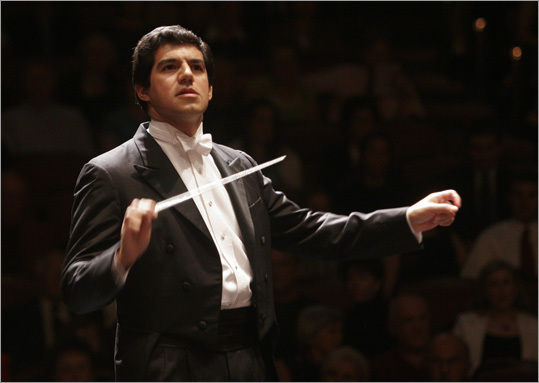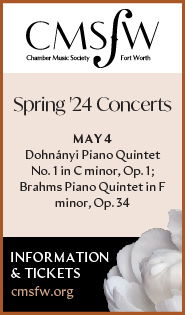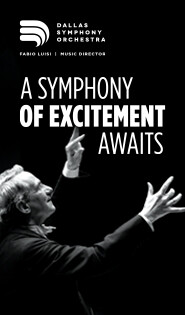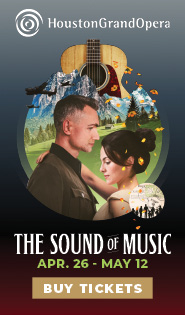Fort Worth Symphony shines brightly in belated Strauss premiere

Miguel Harth-Bedoya conducted the Fort Worth Symphony in the belated local premiere of Richard Strauss’s “Ein Heldenleben” last weekend.
Friday night at Bass Performance Hall, the Fort Worth Symphony Orchestra presented the Fort Worth premiere—yes, premiere—of Richard Strauss’s autobiographical tone poem Ein Heldenleben (“A Hero’s Life”). Long-established in the symphonic repertoire, the work had, for various reasons–mainly the relatively recent history of professional orchestral performance in Fort Worth–never been performed here.
The performance I attended on Saturday revealed an orchestra and a music director quite capable of maneuvering through the complexities of the work to emerge with a thrilling performance. The challenge for the conductor lies first of all in guiding the monumental orchestral forces Strauss calls for, but also in convincingly holding together the unique autobiographical structure. This is not a work for holding back the climax: the initial statement and opening section is an early high point from which the rest of the work must emerge. Harth-Bedoya here demonstrated a command of the unique architecture of Strauss’s grand edifice, allowing the initial burst of passion and energy to explode ecstatically while maintaining, for the next forty minutes, the energy this explosion created.
The orchestra’s core of seventy musicians was expanded to 95 for this concert. While Harth-Bedoya has, over the years, molded this string section into one focused on clean precision, here the strings, including the additional players, immediately took on a deeper, warmer resonance while maintaining their characteristic precision—a tribute to the skill of the conductor, the orchestra, and the additional musicians. The entry of the chattering winds in the second section, a not-so-subtle jab at the often hostile music critics of Strauss’s day, likewise showed off the assertive tone and precision of those sections. And Harth-Bedoya very neatly paced the interplay of the somber reply from the strings to that chattering.
Concertmaster Michael Shih took the spotlight winningly for the third section, traveling easily through the intricacies of what amounts to a short but difficult violin concerto describing the mood swings of Strauss’s wife. Harth-Bedoya carried his command of the works’ complex structure and trajectory through the ensuing battle scene (“The Hero’s Deeds of War”), landing with breathtaking timing on the penultimate movement, “The Hero’s Works of Peace.” Strauss’s music, though wrapped in the style of a different time, continues to exude freshness, and Harth-Bedoya’s reading captured that enduring power to awe through the alternating radiance and intensity of the final moments. While the concertmaster and numerous other principals have plenty to deal with in this work, the horns have the greatest challenges, and principal horn Molly Norcross led the charge with consistent power and finesse.
The concert opened with excerpts from Edvard Grieg’s music for Ibsen’s Peer Gynt. Rather than drawing from the two suites created by Grieg for orchestral performances, Harth-Bedoya created a new suite of six excerpts directly from the original score and including two tidbits not used by Grieg in the suites.
The performance opened with principal violist Laura Bruton performing the rarely heard folk-like fiddle music from backstage, answered by concertmaster Shih performing the same music from the back of the auditorium. The much-loved “Morning” movement followed, with the expanded string section performing with rich delicacy. Given the long life of this score as fodder for music appreciation courses and commercials, it was pleasant to be reminded how really excellent and inspired this music is.


